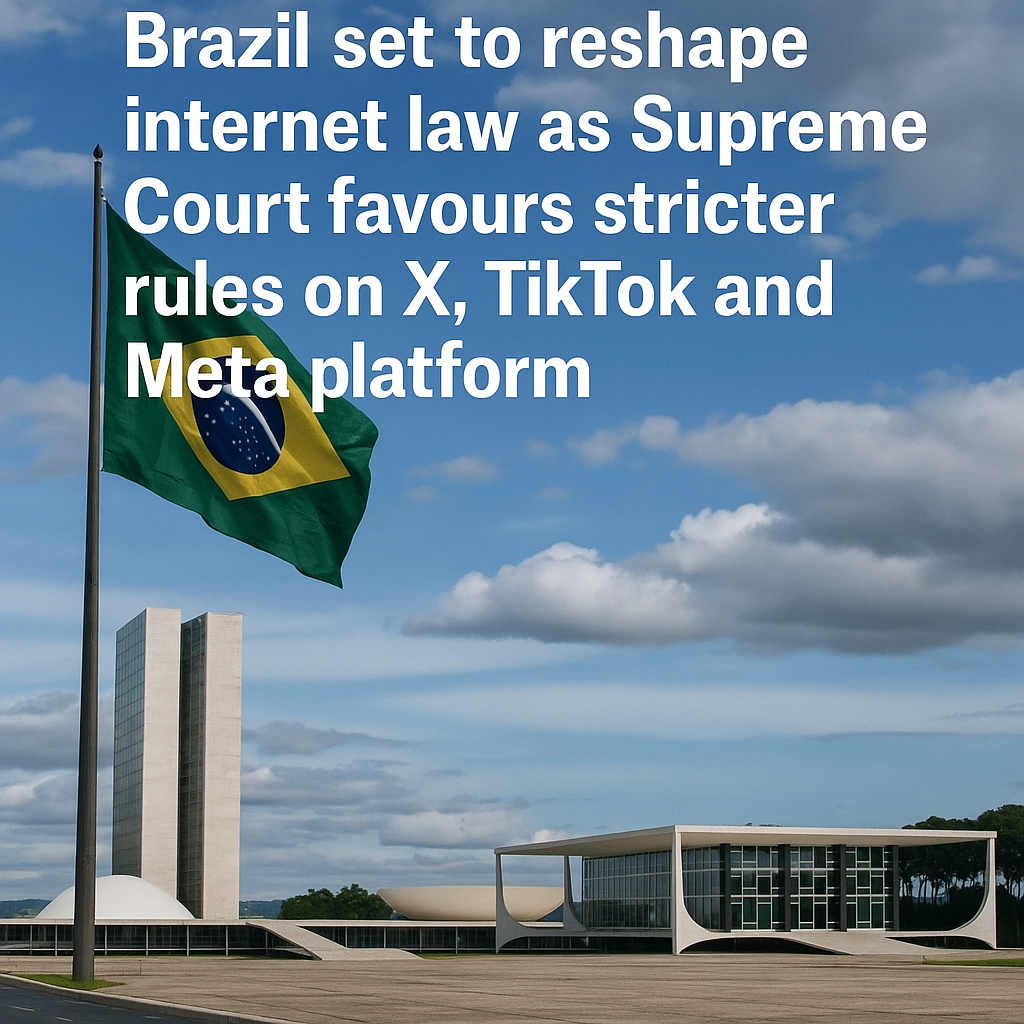BRASILIA, June 12 — In a decision that could redefine how the internet works in Brazil, the country’s Supreme Court has reached a majority in favor of strengthening regulations on social media platforms like X (formerly Twitter), TikTok, Instagram, and Facebook.
This move marks a significant step toward holding tech companies more accountable for the content shared on their platforms—particularly in an era when misinformation and hate speech can spread faster than truth.
Until now, Brazilian law has largely shielded these platforms from blame, only requiring them to act if a judge specifically ordered the removal of harmful content. But that could soon change. By Wednesday, six out of eleven Supreme Court judges agreed that tech giants should take more proactive steps—monitoring and removing dangerous or illegal posts even before the courts intervene.
“It’s about responsibility,” said Justice Flavio Dino, speaking in an online session that gripped national attention. “True freedom is not unregulated chaos—it’s freedom with accountability.” He compared the situation to trying to run an airline with no safety rules—potentially catastrophic.
Not everyone agrees, of course. Google, one of the world’s most powerful online platforms, responded cautiously. The company warned that stricter laws might not solve the problem of harmful content and could complicate enforcement without actually reducing online abuse.
This legal shift is happening against a tense political backdrop. Former far-right president Jair Bolsonaro, now on trial, is accused of trying to overturn his 2022 election loss through a social media-fueled coup attempt. His supporters allegedly used platforms to spread lies about the election system and to rally support for unlawful actions.
Justice Alexandre de Moraes—who has clashed openly with X owner Elon Musk and taken firm action against online disinformation—once blocked access to X in Brazil for 40 days due to repeated non-compliance with court orders.
Now, as the world watches, Brazil is on the edge of a new chapter in digital governance. President Lula, who narrowly defeated Bolsonaro in 2022, is urging swift action, pushing for rules that protect both democracy and public discourse.
This isn’t just a legal debate—it’s about the kind of online world Brazil wants for its people.




